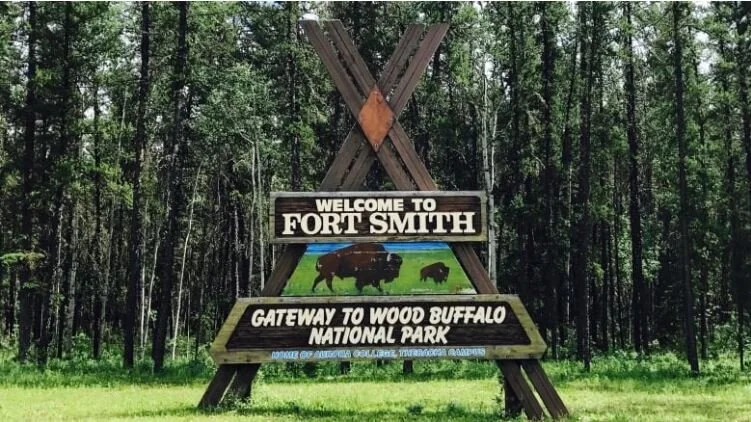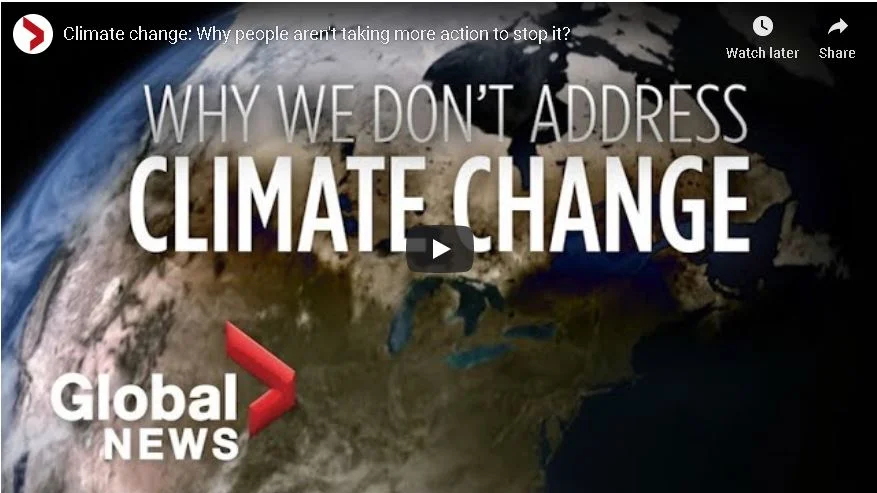AFN Manitoba Regional Chief Cindy Woodhouse spoke at the United Nations Water Conference recently in New York to highlight the rights of First Nations when it comes to safe drinking water. Woodhouse talked about water governance and the need for intensified action to realize the human right to safe drinking water and sanitation for all indigenous peoples. Some 10,000 participants gathered at UN Headquarters and online from March 22-24 to address the water crisis and “ensure equitable access to water for all.”
Government of Canada invests in Indigenous-led Natural Climate Solutions across the country
Indigenous peoples have been stewards of our natural environment since time immemorial. Conserving and restoring nature through Traditional Knowledge and Indigenous Science is fundamental to addressing the twin crises of climate change and biodiversity loss. Climate change is altering the water cycle, resulting in flooding, droughts, and wildfires. It is also one of the key drivers of biodiversity loss. Conserving and restoring nature are important ways for mitigating and adapting to climate change. Canada is committed to implementing nature-based solutions to build resilience and help meet the country's 2030 and 2050 greenhouse gas emissions reduction targets.
A drying delta
At one time, the little blue cabin on the shores of the Athabasca River was brimming with life: a mother, a father and their 15 children coming together to hunt and gather, share family meals and tackle the many chores. “We prayed as a family, we picked berries as a family,” recalls 71-year-old Alice Rigney, whose childhood was spent in the two-bedroom structure in a place called Jackfish, a northeastern Alberta fishing spot.
‘I’m making difficult connections and having difficult conversations’
Zahra Tootonsab is in the second year of her PhD program in the Faculty of Humanities’ Department of English and Cultural Studies. Her research focuses on water pollution in Canada and Iran, and how Indigenous knowledges in both places can help inspire environmental activism and promote water security. This year, Tootonsab received a Wilson Leadership Scholar Award, which is part of a leadership development program launched at McMaster by Chancellor Emeritus L.R Wilson. Here, she shares her thoughts on her research and the influences on her work.
Nadina Gardiner on the Saskatchewan River Delta
WWF-Canada’s Beyond Targets report proposes a new model for protected and conserved area establishment in Canada — one that prioritizes the advancement of Indigenous Protected and Conserved Areas (IPCAs) and Indigenous rights and title, as well as areas that support nature-based solutions for both biodiversity and climate. In it, we spotlight four IPCAs, including the Saskatchewan River Delta (Kitaskīnaw), a 9,706 square kilometre inland water delta, the largest in North America.
‘Disrespected, violated, contaminated’: Researcher says safe drinking water shouldn’t fall solely on the backs of Indigenous peoples
Water is life. Don’t mess with it. That’s the message from one Indigenous cultural anthropologist and water researcher: nothing can live without water, yet we’re destroying it at a rapid pace. In 2015, the federal government campaigned to end all long-term drinking water advisories in First Nations communities by 2020. Two years after that promised date, water advisories are still present in 94 First Nations communities, with Neskantaga First Nation, an Ojibwe community more than 430 kilometres northeast of Thunder Bay, Ont., surpassing 10,000 days under a boil water advisory this week.
Curve Lake hopeful ‘absolute tragedy’ of clean water crisis for First Nations ends with $8 billion settlement
Despite $8 billion coming to provide clean drinking water to communities like Curve Lake First Nation, that money won't fix the physical or emotional trauma inflicted on Indigenous peoples. “There is absolutely no amount of money that can make up for being denied clean drinking water for so many years,” says lawyer Stephanie Willsey. Willsey, who is Chippewa from Rama First Nation, helped bring a class-action lawsuit against the federal government. She says the settlement will change people’s lives and set up future generations so they won't have to face the same health crisis First Nations have been dealing with for decades.
Community feedback helps shape Sault Ste. Marie's water agency bid
A Sault Ste. Marie task force is releasing the findings of its community consultations that will help shape its bid to become the future home of the Canada Water Agency. Creation of the new federal agency was announced in 2020, with officials saying its goal is to help improve freshwater management in Canada. In Sault Ste. Marie, an official bid to host the agency was launched last year, with the Sault's central location to the Great Lakes as a big selling point.
COLUMN: To Indigenous, election issues have never changed
Another federal election cycle is upon us. And to the Indigenous, the issues remain the same. In fact, they are as old as our relationship with Canada itself. Before we were placed on the Shkonjigan (Sh-kohn-jih-gun), meaning leftovers, which is the Ojibwe word for Reserves, we had everything we needed. We had lived off of the bounty that the land had provided us for millennia. Everything we knew we learned from the land itself. Our word for teaching is, Akinoomaagewin (Ah-kih-noh-maw-geh-win) meaning teaching from the land, and that is how we learned to survive and to live in harmony with the natural world. But, contact and encroachment of our ancestral territory changed all of that. The record of those changes are contained in the Ojibwe language itself.
BlackBerry unveils new flood risk and clean water monitoring solution
BlackBerry announced the release of a new tool that will help address flood risk and clean water monitoring. The company is working with the University of Windsor on the project -- which runs on BlackBerry's AtHoc critical event management platform -- and testing it in Canada. In a statement, BlackBerry explained that Indigenous peoples across Canada are disproportionately impacted by flooding and a lack of clean water, which prompted the two organizations to join forces. The technology "provides autonomous year-round monitoring and an intelligent early warning system, collecting and processing large amounts of sensor data, and generating alerts based on the data insights."
The Government of Canada releases its final decision on the Laurentia Project: Port of Quebec Deep-Water Wharf - Beauport Sector
The Government of Canada is committed to developing Canada's marine transportation sector and creating good middle-class jobs, while recognizing that a strong economy and a clean environment must go hand in hand. Following a thorough and rigorous environmental assessment, the Impact Assessment Agency of Canada's (the Agency's) Environmental Assessment Report concluded that the Laurentia Project: Port of Quebec Deep-Water Wharf – Beauport Sector was likely to cause significant adverse environmental effects to fish and fish habitat, air quality and human health, socio-economic conditions, and the current use of lands and resources for traditional purposed by Indigenous peoples.
Government of Canada launches consultation process for new Canada Water Agency
“Through the Canada Water Agency, our government is looking to strengthen collaboration between the federal government, the provinces, territories, Indigenous peoples and other partners to find the best ways to safeguard our freshwater consultations are an important part of this process and I look forward to input from Canadians,” Terry Duguid said in a statement. Mr. Duguid is Parliamentary Secretary to Minister Wilkinson and has been key in the development process. The discussion paper, ‘Toward the Creation of a Canada Water Agency,’ presents key issues and provides an overview of the federal government’s existing activities to enhance freshwater management, and a virtual national freshwater policy forum is planned for January 27 and 28. A series of regional forums will be held in February that will provide additional opportunities to participate in consultations. The discussion paper and additional information can be found at placespeak.ca. Comments can be submitted until March 1.
Toward The Creation Of A Canada Water Agency Environment And Climate Change Canada Seeks Comments On Discussion Paper
The federal government seeks feedback on whether the objectives outlined in the Discussion Paper are the right objectives for the government to pursue and input on which objectives should be prioritized. Input is sought from provinces, territories, Indigenous peoples, local authorities, the private sector, non-government organizations, and the public. Feedback will inform the federal government's next steps in implementing the CWA. The deadline for providing feedback on the Discussion Paper is March 1, 2021. Information about where to send responses is provided in the Discussion Paper. In January 2021, the federal government will host a virtual national freshwater policy forum. A series of regional forums will be held in February 2021 to provide further opportunities for Canadians to participate in consultations on the Discussion Paper.
Ottawa replaces federal bureaucrat working with Neskantaga First Nation during state of emergency
At the community's request, Indigenous Services Canada has replaced the top federal bureaucrat working with Neskantaga First Nation during its current state of emergency. Assistant deputy minister Joanne Wilkinson has taken over from Ontario regional director general Anne Scotton as the liaison between department officials and Neskantaga — a fly-in community about 450 km north of Thunder Bay, Ont., that has been under a boil-water advisory for 25 years.
Coldwater band applies to Supreme Court of Canada over Trans Mountain expansion
A B.C. First Nation is applying to argue its case at the Supreme Court of Canada for the protection of its drinking water in relation to the Trans Mountain pipeline expansion. "This application is unlike any other proceeding concerning the Trans Mountain Pipeline Expansion Project," states the Coldwater application, filed on Friday. "It is about ensuring that the sole source of drinking water within the Coldwater Indian Band's reserve is protected."
Smith's Landing First Nation asks N.W.T. to speak out against northern Alberta mine
The chief of Smith's Landing First Nation near Fort Smith, N.W.T, is calling on the territorial government to speak out against a northern Alberta mining project. "The government of the Northwest Territories is strangely silent … on the oil sands projects," Chief Gerry Cheezie said. Cheezie said that N.W.T. Premier Caroline Cochrane should be hosting meetings with Prime Minister Justin Trudeau and Alberta Premier Jason Kenney to make sure the Indigenous communities living within the Mackenzie water system will not be affected by the controversial $20.6 billion Teck Frontier mining project that is proposed for a site 110 kilometres north of Fort McMurray, Alta.
Indigenous communities face 'abhorrent' housing conditions, UN report finds
Indigenous people fare far worse than non-Indigenous populations when it comes to attaining safe and secure housing, both worldwide and here in Canada, according to a new United Nations report. The UN's special rapporteur on adequate housing, Ottawa's Leilani Farha, presented the report to the General Assembly Friday. It found that Indigenous communities lag behind when it comes to housing conditions and that their territories tend to be the "most disadvantaged in terms of access to infrastructure, including access to drinking water and sanitation, education and health services."
Water shortages and yearly floods: Canada won’t escape climate crisis, UN report says
Damage to Earth’s oceans and glaciers from climate change is outpacing the ability of governments to protect them, a new report from an international scientific panel concludes. “The capacity of governance systems in polar and ocean regions to respond to climate change impacts has strengthened recently,” says the Intergovernmental Panel on Climate Change. “But this development is not sufficiently rapid or robust to adequately address the scale of increasing projected risks.”
Trans Mountain pipeline in limbo as Federal Court of Appeal orders Canada fix ‘flawed’ project
The Coldwater Indian Band, which asserts traditional territories in south-central B.C., said the pipeline route passes an aquifer that is the sole supply of drinking water for its main reserve “This is a major victory for my community,” said Coldwater Chief Lee Spahan. “Thankfully, the court has stepped in where Canada has failed to protect and respect our rights and our water.”




















